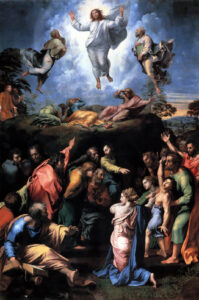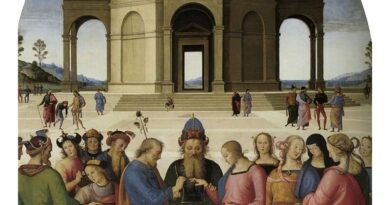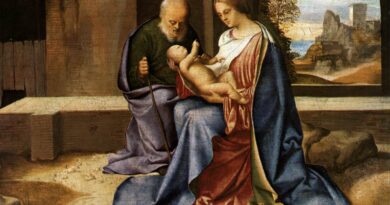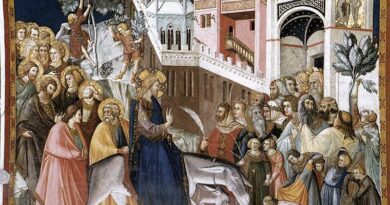Feast of the Transfiguration of the Lord
Massimo Palombella

The origin of this feast can be traced back to the time when Empress Helena wanted the Church of the Transfiguration built on Mount Tabor. The feast was already common in the Eastern Churches in the 5th century, while today the Transfiguration is one of the twelve great feasts celebrated in the Orthodox Church.
Pope Callixtus III included this feast in the Roman Calendar as thanksgiving for the victory over the Turks in Belgrade on 6 August 1456 by Janos Hunyadi and St John of Capestrano.
In the Transfiguration on the ‘holy mountain’ – traditionally identified with Mount Tabor – Jesus manifests himself in the splendour of the divine life that is in him, in the fullness of life, in fulfilment, anticipating in history what the Resurrection will be.
In our lives, too, we can experience moments similar to the Transfiguration where we understand our identity, we experience the fullness of life, the meaning, the fulfilment, the unity and the place of every aspect of our existence. These are moments that are given to us for the quality of our daily life, to be able to face with the dignity and strength that belongs to us the inevitable challenges that everyday life presents us with, beyond any temptation to freeze these moments in a sort of anti-historical bubble and continue to search for them spasmodically.
In Sermon 78, St Augustine comments on the Transfiguration in relation to the Apostle Peter as follows: “Come down, Peter; you wished to rest on the mountain: come down; preach the word of God, insist on every opportune and importunate occasion, rebuke, exhort, encourage using all your patience and teaching ability. Work, toil much, accept also sufferings and tortures so that, through the candour and beauty of good works, you may possess in charity what is symbolised in the candour of the Lord’s garments… Descend to toil on earth, to serve on earth, to be despised, to be crucified on earth… Do not seek your own interests. You must have charity, preach the truth; then you will reach eternity, where you will find tranquillity”.
The Offertory Antiphon of today’s celebration is taken from Psalm 8 (Ps 8:6, 7) with the following text:
“Gloria et honore coronasti eum:
et constituisti eum super opera manuum tuarum, Domine.”
(With glory and honour you crowned him
and constituted him over the works of your hands, Lord).
The attached music, in Gregorian Chant, is taken from the Gradual Triplex published in Solesmes in 1979. The interpretation is by the “Coro Gregoriano De Lisboa” directed by Maria Helena Pires de Matos.
A blessed Sunday and heartfelt greetings.


